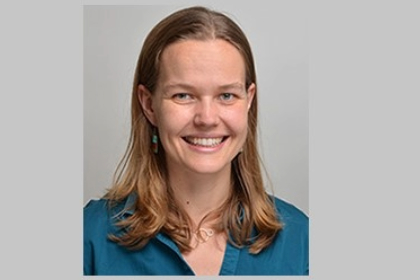(FEBRUARY 7, 2024) Catherine Naden, M.D.’11, clinical assistant professor of family medicine, spoke with Vermont Public about mammogram guidance.

Catherine Naden, M.D.’11, clinical assistant professor of family medicine
(FEBRUARY 7, 2024) Catherine Naden, M.D.’11, clinical assistant professor of family medicine, spoke with Vermont Public about mammogram guidance.
Health care organizations offer such varying guidance about mammography, and there’s an alphabet soup of acronymed health care organizations with their own mammogram guidance, making it hard to figure out if someone should start getting screened—and when. Providers say that’s a problem, because mammograms are an essential tool to catch breast cancer before it advances too far to treat.
“How worried are you that you might have breast cancer? How much do you want to open Pandora’s box? Sometimes people have less anxiety keeping Pandora’s box closed, and sometimes they have more anxiety knowing that they’re choosing not to open it,” Naden said.
Early detection can be paramount in finding breast cancer, particularly for aggressive cancers, which is why experts are worried that at-risk Americans are getting far fewer mammograms than they did 15 years ago when popular guidance shifted. According to UVM Cancer Center research from last spring, Vermont has seen the second steepest decline in screening rates of any state in the country.
But knowing if you’re at risk—and if it’s the right time for a screening—can be tricky. Naden recommends talking to a provider you trust. “This is a very nuanced conversation,” she says. “It’s really got to be about family history, when you had your first period, how many kids you’ve had, and it’s not really something that can be boiled down to a soundbite of, ‘This is who is average risk,’ and, ‘This is who is high risk.’”
The bottom line is, breast cancer is very treatable if it is caught early. Health care providers say, “The more screening we do, the more cases we detect, the earlier we detect them and the more treatable they are.”
Read full story
at
Vermont Public